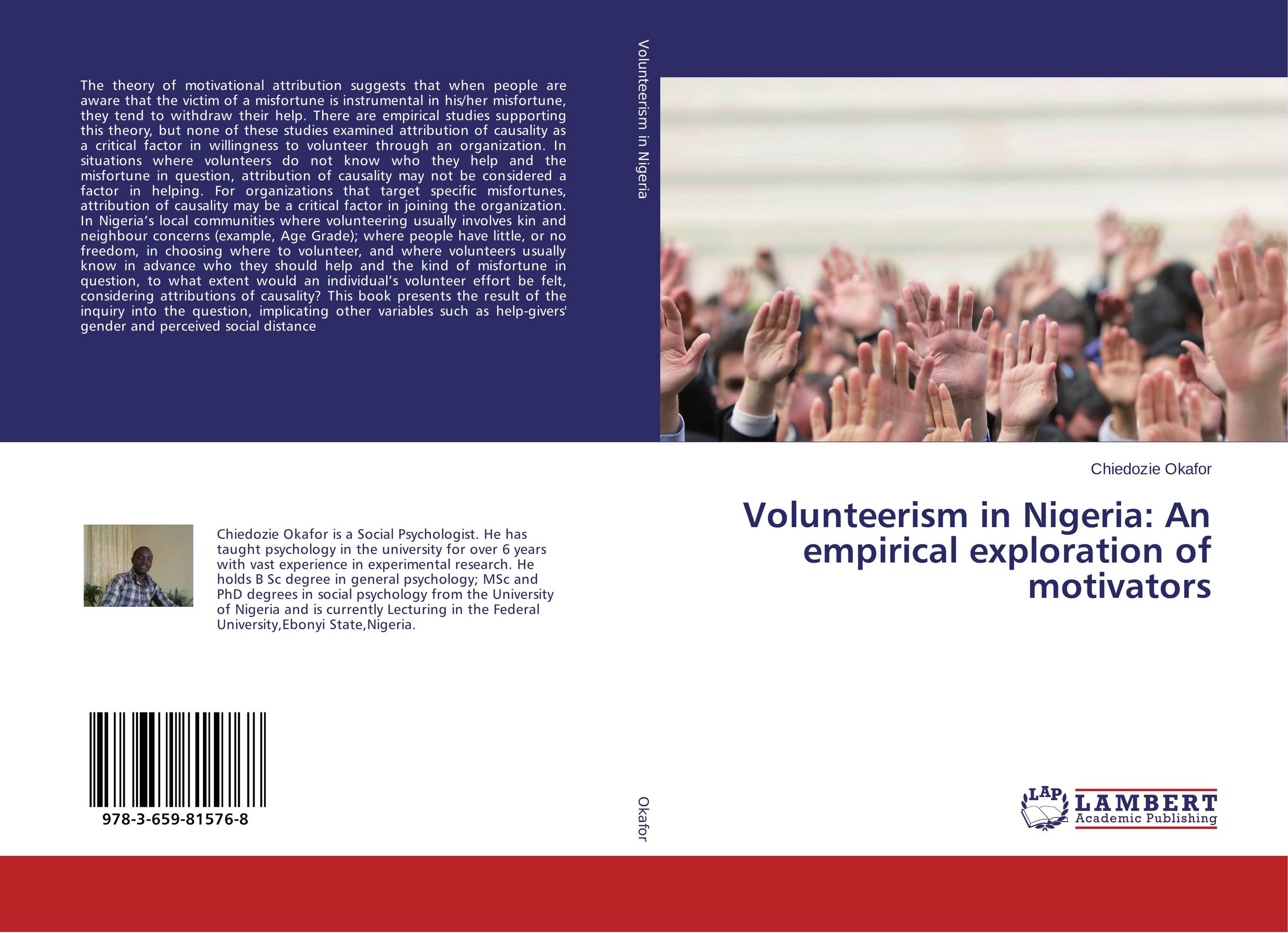| Поиск по каталогу |
|
(строгое соответствие)
|
- Профессиональная
- Научно-популярная
- Художественная
- Публицистика
- Детская
- Искусство
- Хобби, семья, дом
- Спорт
- Путеводители
- Блокноты, тетради, открытки
Volunteerism in Nigeria: An empirical exploration of motivators.

В наличии
| Местонахождение: Алматы | Состояние экземпляра: новый |

Бумажная
версия
версия
Автор: Chiedozie Okafor
ISBN: 9783659815768
Год издания: 2015
Формат книги: 60×90/16 (145×215 мм)
Количество страниц: 128
Издательство: LAP LAMBERT Academic Publishing
Цена: 32883 тг
Положить в корзину
| Способы доставки в город Алматы * комплектация (срок до отгрузки) не более 2 рабочих дней |
| Самовывоз из города Алматы (пункты самовывоза партнёра CDEK) |
| Курьерская доставка CDEK из города Москва |
| Доставка Почтой России из города Москва |
Аннотация: The theory of motivational attribution suggests that when people are aware that the victim of a misfortune is instrumental in his/her misfortune, they tend to withdraw their help. There are empirical studies supporting this theory, but none of these studies examined attribution of causality as a critical factor in willingness to volunteer through an organization. In situations where volunteers do not know who they help and the misfortune in question, attribution of causality may not be considered a factor in helping. For organizations that target specific misfortunes, attribution of causality may be a critical factor in joining the organization. In Nigeria’s local communities where volunteering usually involves kin and neighbour concerns (example, Age Grade); where people have little, or no freedom, in choosing where to volunteer, and where volunteers usually know in advance who they should help and the kind of misfortune in question, to what extent would an individual’s volunteer effort be felt, considering attributions of causality? This book presents the result of the inquiry into the question, implicating other variables such as help-givers' gender and perceived social distance
Ключевые слова: volunteerism, Social Distance, attribution, kinship, Gender



